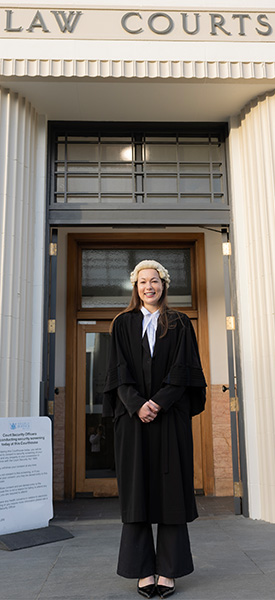Recent changes to Property Law Act and how they might affect you.


Trudy Conway
Parliament has recently passed the COVID-19 Response (Management Measures) Legislation Bill. Upon receiving Royal Assent, which is likely to be later this month, the Bill will come into force as an Act (Act). The Act is temporary and will amend numerous pieces of legislation including the Property Law Act 2007 (PLA).
The Act will take effect on the date of Royal Assent and will remain in place until the Epidemic Preparedness (COVID-19) Notice 2020 expires or is revoked. The amendments to the PLA affect commercial leases, subleases and licences that do not currently have a qualifying “no access in emergency” clause (containing a process for rent relief due to an epidemic).
The Act will import requirements into leases, subleases and licences for landlords and tenants (or licensors and licensees) that do not contain a “no access in emergency” clause to agree on a level of rent relief for any period between 18 August 2021 (the start of the most recent lockdown) and the date the Act is repealed where the tenant or licensee is or was unable to access the premises to fully conduct their operations, due to health and safety reasons related to the epidemic.
The landlord or licensor will need to agree with the tenant or licensee on what is a “fair proportion” of rent relief during the relevant period. The only factor that the Act specifies the parties must consider when agreeing this is the tenant’s or licensee’s loss of income during such period. It is unclear whether this is the only factor that is to be considered or whether factors may also be considered. If the parties can’t agree on the “fair proportion” of rent relief, they can agree to participate in mediation or other dispute resolution process. If they cannot agree on a dispute resolution process, or if this ultimately fails, the Act requires the parties to go to arbitration to settle the dispute.
There is such a strong emphasis in the Act on the parties agreeing the “fair proportion”, that the Act prevents a landlord or licensor from terminating the lease or licence for non-payment of rent until the parties have agreed on this. This ignores the fact that there are other possible reasons why a tenant or licensee may have defaulted in their rent payments. If the tenant or licensee is uncooperative in taking steps to agree this, the landlord or licensor would have to go through arbitration just to be able to terminate the lease for non-payment of rent, even if this is due to some reason unrelated to the epidemic.
The good news for the majority of landlords and tenants is that the current version of ADLS deed of lease has a qualifying “no access in emergency” clause. This was added in response to the Canterbury earthquakes, where in the aftermath of the earthquake it became apparent that the lease terms did not cover what was to happen to rent payments for buildings in the red zone that were undamaged but inaccessible. Therefore, any lease entered into on a 2012 version of ADLS lease (this includes the current form of lease which remains a 2012 version) will not be affected by this law change.
The Act also permits the parties to agree that they will not be bound by the Act. This would require a specific term in the lease or licence, or another form of agreement entered into by the parties, provided such agreement is entered into on or after 18 August 2021. Any agreement by the parties before 18 August 2021 (for example, where the parties crossed out the standard term in the ADLS deed of lease before 18 August 2021), will not overrule the Act.
If you have any questions about how the Property Law Act changes may affect your leasing relationships during the pandemic, and particularly if you have not yet agreed on rent relief with your landlord or tenant, please get in touch with your contact at AWS Legal who will be happy to provide advice.
Articles and Updates








